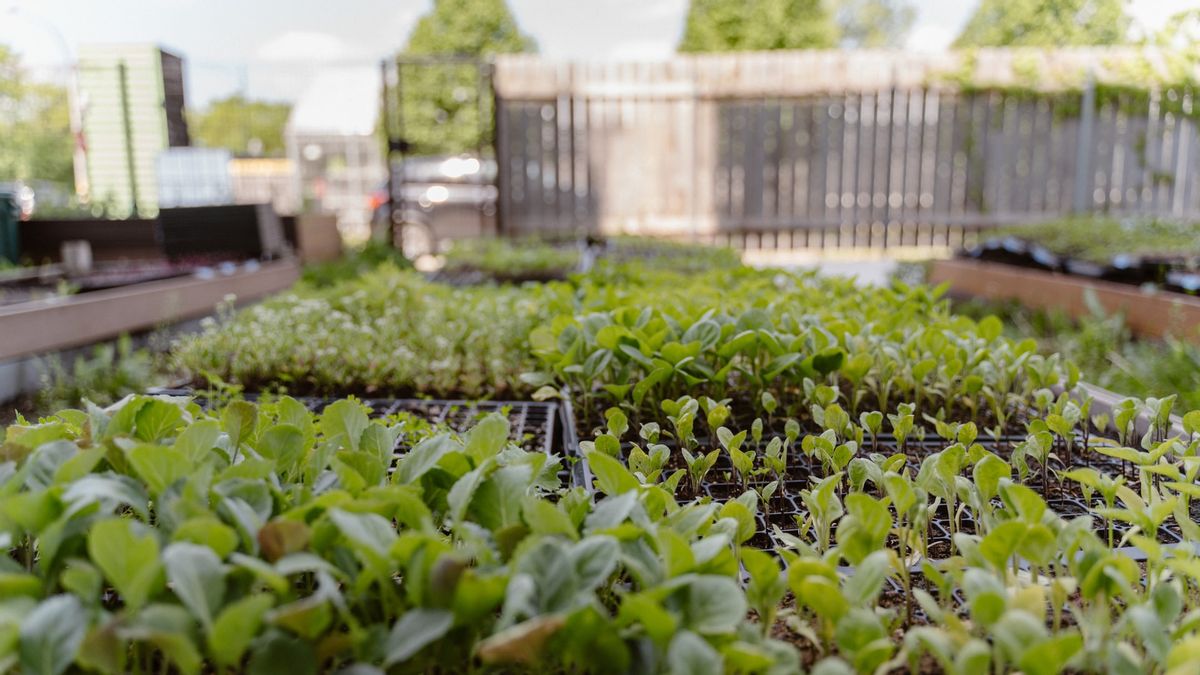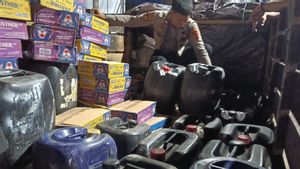JAKARTA – Each household averages 0.7 kilograms of waste per day. So that it doesn't pile up in one dump, you can process it properly. Such as by converting organic waste to fertilizer plants.
In order for plants to grow fertile, nutrients are needed. Well, nutrition for your favorite plants doesn't have to be difficult to get. Even the following kitchen waste can be beneficial for plants. Launching the Burlington Free Press, Tuesday, June 15, one person's waste turns out to be a fertiliser for other living things.
What are some things that you shouldn't throw in the trash and can be used as plant fertilizers? Check the following list.
Coffee groundsSome plants like soil with a high pH, such as tomatoes, hydrangeas, and shrubs such as blueberries. If before brewing, coffee grounds contain too high a pH.
So to lower the acidity level so that the plant roots are well received, sprinkle the used coffee grounds.
Banana peelBananas are high in potassium, including the peel which you can bury in the ground on the plant. Potassium and nitrogen from banana peels can seep into the soil.
Local gardening expert and author of The Woodchuck's Guide to Gardening, Ron Krupp, says composting is the easiest way to reduce waste and keep plants happy.
“You can stack these items in the backyard. This is truly your best natural fertilizer choice,” said Krupp curtly.
Egg shellSimilar to banana peels and coffee grounds, crushed egg shells can be used as fertilizer. Because it contains calcium, it can restore soil nutrients.
You can also apply clam shell fertilizer to reduce soil acidity. Can also be mixed with coffee grounds to restore the pH balance.
Cardboard and newspaper mixed with grass clippingsIf your small garden is planted with ornamental grass, of course a month or two need to cut it so it doesn't rise. Then, collect newsprint or cardboard that has been cut into small pieces and mix it with grass clippings.
The mixture can be compost that will do well in the garden. Jen Baer of Green Mountain Compost recommends collecting leftover food in a covered bucket and dumping it on the plants to make it biodegradable and plant-fertilizing.

Illustration of backyard garden (Unsplash/Markus Spiske)
After brewing the tea, do not throw away the remaining pulp. If you brew tea by boiling it Indian style and mixing it with sugar or milk, then you need to wash it first to make it effective for composting.
Used tissueGrouping the types of waste will certainly be easier to manage. Like separating used tissue after use to wipe the scattered food.
Used tissue can be mixed with organic waste so that it can be compost that fertilizes and degrades perfectly without making household waste build up.
In addition to the six items above, fruit peels can also be used for compost. Yes, the best way to maintain the natural cycle is to manage household waste independently and it is beneficial to fertilize plants at home.
The English, Chinese, Japanese, Arabic, and French versions are automatically generated by the AI. So there may still be inaccuracies in translating, please always see Indonesian as our main language. (system supported by DigitalSiber.id)













